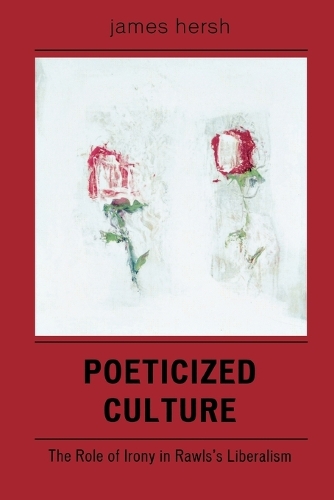
Poeticized Culture: The Role of Irony in Rawls's Liberalism
(Paperback)
Publishing Details
Poeticized Culture: The Role of Irony in Rawls's Liberalism
By (Author) James Hersh
University Press of America
University Press of America
30th September 2005
United States
Classifications
Tertiary Education
Non Fiction
Political science and theory
320.51
Physical Properties
Paperback
220
Width 156mm, Height 222mm, Spine 17mm
336g
Description
In Poeticized Culture, James Hersh shows the John Rawls' framework of liberal public reason (Political Liberalism, 1993), within which he proposes his scheme of justice as fairness, includes an unacknowledged call for a Richard Rortian 'poeticized culture.' Hersh argues that, despite Rawls's intentions, his framework within which he proposes justice as fairness demands a Rortian ironic perspective and does not allow for citizens to hold absolute or literal religious beliefs. Hersh argues that this Rortian perspective makes Rawls's justice as fairness the most reasonable scheme for the world's emerging democracies, particularly for those democracies emerging in the Middle East where literal religious beliefs are held with such fervor.
Reviews
A timely and urgent reminder of the role of irony and of poetic imagination for the world ridden by a variety of religious and ideological fundamentalism. -- Lubomir Gleiman, Professor of Philosophy Emeritus, Salve Regina University
Lucid, well argued texta seminal work in comparative literature on John Rawls. -- Naresh Dadhich, Professor of Political Science, University of Rajasthan, Jaipur, India and author of John Rawls: Theory of Justice (2003)
Author Bio
James Hersh is Professor of Philosophy at Salve Regina University. Professor Hersh holds a Ph.D. in Philosophy and Religion from The Union Institute.
